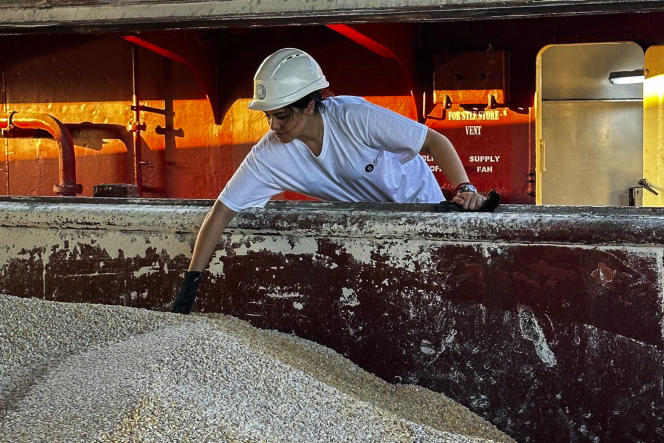A month ago, on June 17, a delegation of African heads of state visited Russia. They pleaded with Vladimir Putin for the end of the war in Ukraine, but also for the maintenance of the agreement on the export of Ukrainian cereals, which Moscow threatened to leave. The presidency of South Africa had notably defended, through the voice of its spokesperson, the“ importance of grain deliveries to Africa in alleviating food insecurity ». The plea was clearly not heard, the Kremlin having announced, on Monday July 17, its withdrawal from the agreement signed in July 2022.
African countries, many of which face high inflation and growing difficulty in feeding their people, import much of their grain from outside the continent. Opposite, Ukraine and Russia are among the main world exporters of wheat, barley or corn. The African Development Bank (AfDB) has estimated that in 2020, fifteen out of fifty-four African countries buy more than half of their wheat from one of these two countries.
“ East Africa is of particular concern to us. Russia and Ukraine provide the majority of grain in this region”, declared Akinwumi Adesina, the president of this pan-African institution, at the beginning of 2022. Kenya, Ethiopia and Somalia were then affected by a record drought which threatened 13 million people with famine. Following the grain agreement, the arrival in the region in August 2022 of a first ship of Ukrainian wheat was qualified as ” relief “ by US Special Envoy for Global Food Security, Cary Fowler.
Egypt, one of the biggest wheat importers
The collapse of the agreement which had allowed the export of 33 million tonnes of Ukrainian cereals (largely benefiting Turkey and China, but also the UN World Food Programme) will first affect exporters Ukrainians. The effect on Russian sales is more uncertain, although the international sanctions do not affect agricultural products.
For the economist Charlie Robertson, it is North Africa in the first place which will suffer from the Russian withdrawal from the agreement, in particular Egypt, one of the largest importers of wheat in the world. “The majority of Egypt’s grain imports come from Russia and Ukraine and anything that can jeopardize these exchanges, anything that can make them more expensive, represents direct suffering”notes the former chief economist of Renaissance Capital, passed to the fund FIM Partners. He recalls that in a country with 30% inflation, any increase “food prices hurt the man in the street”. According to Reuters, Egypt has reduced its dependence on Ukrainian wheat, which fell from 28% to 9% of imports between 2021 and 2022… in favor of Russian wheat (from 50% to 57%).
You have 42.78% of this article left to read. The following is for subscribers only.
